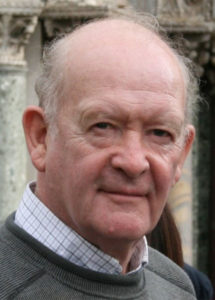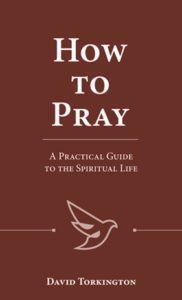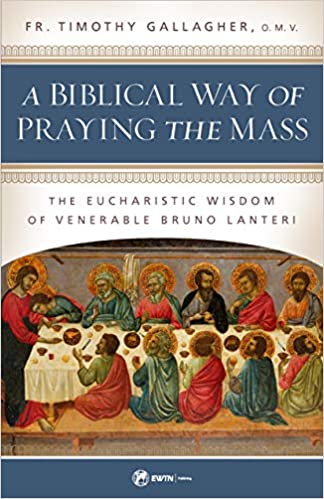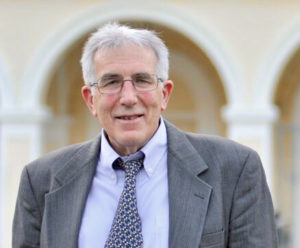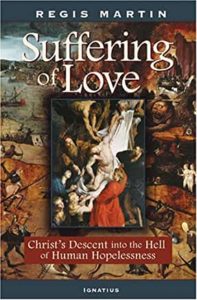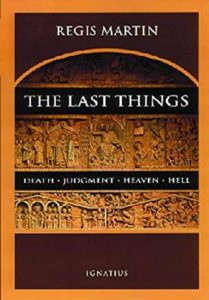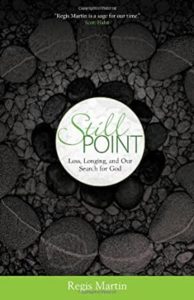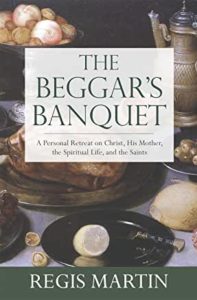Podcast: Play in new window | Download (Duration: 32:33 — 22.4MB) | Embed
Subscribe: Apple Podcasts | Spotify | Amazon Music | Android | Pandora | iHeartRadio | JioSaavn | Podchaser | Gaana | Podcast Index | Email | TuneIn | Deezer | Anghami | RSS | More

First Three Hail Mary’s:
- I live now not with my own life but with the life of Christ who lives in me. The life I now live in this body I live in faith: faith in the Son of God who loved me and who sacrificed himself for my sake. (Galatians 2:20)
- I know the plans I have in mind for you – it is Yahweh who speaks – plans for peace, not disaster, reserving a future full of hope for you. Then when you call to me, and come to plead with me, I will listen to you. When you seek me you shall find me, when you seek me with all your heart; I will let you find me. (Jeremiah 29:11-14a)
- Love is always patient and kind; it is never jealous; love is never boastful or conceited; it is never rude or selfish; it does not take offense and is not resentful. Love takes no pleasure in other people’s sins but delights in the truth; it is always ready to excuse, to trust, to hope, and to endure whatever comes. Love does not come to an end (1 Corinthians 13:4-8)
For the entire Discerning Hearts Scriptural Rosary visit here
The Glorious Mysteries
The Resurrection of Jesus Christ
- Meanwhile, Mary stayed outside near the tomb, weeping. Then, still weeping, she stooped to look inside, and saw two angels in white sitting where the body of Jesus had been, one at the head, the other at the feet. (John 20:11-12)
- They said, ‘Woman, why are you weeping?’ ‘They have taken my Lord away’ she replied ‘and I don’t know where they have put him.’ As she said this she turned round and saw Jesus standing there, though she did not recognise him. (John 20:13-14)
- Jesus said, ‘Woman, why are you weeping? Who are you looking for?’ Supposing him to be the gardener, she said, ‘Sir, if you have taken him away, tell me where you have put him, and I will go and remove him’.(John 20:15)
- Jesus said, ‘Mary!’ She knew him then and said to him in Hebrew, ‘Rabbuni!’ – which means Master.(John 20:16)
- Jesus said to her, ‘Do not cling to me, because I have not yet ascended to the Father. But go and find the brothers, and tell them: I am ascending to my Father and your Father, to my God and your God.'(John 20:17)
- So Mary of Magdala went and told the disciples that she had seen the Lord and that he had said these things to her.(John 20:18)
- In the evening of that same day, the first day of the week, the doors were closed in the room where the disciples were, for fear of the Jews. Jesus came and stood among them. He said to them, ‘Peace be with you’,(John 20:19)
- The disciples were filled with joy when they saw the Lord, and he said to them again, ‘Peace be with you. ‘As the Father sent me, so am I sending you.’ (John 20:20b-21)
- After saying this he breathed on them and said: ‘Receive the Holy Spirit. (John 20:22)
- For those whose sins you forgive, they are forgiven; for those whose sins you retain, they are retained.'(John 20:23)
The Ascension of Jesus Christ into Heaven
- Meanwhile, the eleven disciples set out for Galilee, to the mountain where Jesus had arranged to meet them. When they saw him they fell down before him, though some hesitated. (Matthew 28:16-17)
- Jesus came up and spoke to them. He said, ‘All authority in heaven and on earth has been given to me. (Matthew 28:19)
- Go, therefore, make disciples of all the nations; baptize them in the name of the Father and of the Son and of the Holy Spirit(Matthew 28:19)
- and teach them to observe all the commands I gave you. And know that I am with you always; yes, to the end of time.'(Matthew 28:20)
- And he said to them, ‘Go out to the whole world; proclaim the Good News to all creation. (Mark 16:15)
- There are many rooms in my Father’s house; if there were not, I should have told you. I am going now to prepare a place for you, (John 14:2)
- Then he took them out as far as the outskirts of Bethany, and lifting up his hands he blessed them. Now as he blessed them, he withdrew from them and was carried up to heaven. (Luke 25:50-51)
- As he said this he was lifted up while they looked on, and a cloud took him from their sight. (Acts 1:9)
- They were still staring into the sky when suddenly two men in white were standing near them and they said, ‘Why are you men from Galilee standing here looking into the sky? Jesus who has been taken up from you into heaven, this same Jesus will come back in the same way as you have seen him go there.’ (Acts 1:10-11)
- He is the radiant light of God’s glory and the perfect copy of his nature, sustaining the universe by his powerful command; and now that he has destroyed the defilement of sin, he has gone to take his place in heaven at the right hand of divine Majesty. (Hebrews 1:3)
The Descent of the Holy Spirit
- When they reached the city they went to the upper room where they were staying; there were Peter and John, James and Andrew, Philip and Thomas, Bartholomew and Matthew, James son of Alphaeus and Simon the Zealot, and Jude son of James. All these joined in continuous prayer, together with several women, including Mary the mother of Jesus, and with his brothers. (Acts 1:13-14)
- When Pentecost day came round, they had all met in one room, when suddenly they heard what sounded like a powerful wind from heaven, the noise of which filled the entire house in which they were sitting; (Acts 2:1-2)
- and something appeared to them that seemed like tongues of fire; these separated and came to rest on the head of each of them. They were all filled with the Holy Spirit, and began to speak foreign languages as the Spirit gave them the gift of speech. (Acts 2:3-4)
- and at this sound they all assembled, each one bewildered to hear these men speaking his own language. They were amazed and astonished. ‘Surely’ they said ‘all these men speaking are Galileans? (Acts 2:6-7)
- Everyone was amazed and unable to explain it; they asked one another what it all meant. Some, however, laughed it off. ‘They have been drinking too much new wine’ they said.(Acts 2:12-13)
- Then Peter stood up with the Eleven and addressed them in a loud voice: ‘Men of Judaea, and all you who live in Jerusalem, make no mistake about this, but listen carefully to what I say. These men are not drunk, as you imagine; why, it is only the third hour of the day. (Acts 2:14-15)
- ‘You must repent,’ Peter answered ‘and every one of you must be baptised in the name of Jesus Christ for the forgiveness of your sins, and you will receive the gift of the Holy Spirit. (Acts 2:38)
- The promise that was made is for you and your children, and for all those who are far away, for all those whom the Lord our God will call to himself.’ He spoke to them for a long time using many arguments, and he urged them, ‘Save yourselves from this perverse generation’. (Acts 2:39-40)
- They were convinced by his arguments, and they accepted what he said and were baptised. That very day about three thousand were added to their number. These remained faithful to the teaching of the apostles, to the brotherhood, to the breaking of bread and to the prayers. (Acts 2:41-42)
- The many miracles and signs worked through the apostles made a deep impression on everyone. The faithful all lived together and owned everything in common; (Acts 2:43-44)
The Assumption of the Blessed Virgin Mary
- I will make you enemies of each other: you and the woman, your offspring and her offspring. It will crush your head and you will strike its heel’. (Genesis 3:15)
- I am going now to prepare a place for you, and after I have gone and prepared you a place, I shall return to take you with me; so that where I am you may be too. (John 14:2-3)
- Father, I want those you have given me to be with me where I am, so that they may always see the glory you have given me because you loved me before the foundation of the world. (John 17:24)
- And Mary said: ‘My soul proclaims the greatness of the Lord and my spirit exults in God my saviour; (Luke 1:46-47)
- because he has looked upon his lowly handmaid. Yes, from this day forward all generations will call me blessed, (Luke 1:48)
- for the Almighty has done great things for me. Holy is his name, (Luke 1:49)
- So my heart exults, my very soul rejoices, my body, too, will rest securely, for you will not abandon my soul to Sheol, nor allow the one you love to see the Pit; (Psalms 16:9-10)
- My Beloved lifts up his voice, he says to me, ‘Come then, my love, my lovely one, come. For see, winter is past, the rains are over and gone. The flowers appear on the earth. The season of glad songs has come, the cooing of the turtledove is heard in our land. (Song of Songs 2:10-12)
- You are wholly beautiful, my love, and without a blemish. (Song of Songs 4:7)
- Who is this arising like the dawn, fair as the moon, resplendent as the sun, terrible as an army with banners?’ (Song of Songs 6:10)
The Coronation of Mary Queen of Heaven
- Those who prove victorious I will allow to share my throne, just as I was victorious myself and took my place with my Father on his throne. (Revelation 3:21)
- Now a great sign appeared in heaven: a woman, adorned with the sun, standing on the moon, and with the twelve stars on her head for a crown. (Revelation 12:1)
- The woman brought a male child into the world, the son who was to rule all the nations with an iron scepter, and the child was taken straight up to God and to his throne, (Revelation 12:5)
- Then the dragon was enraged with the woman and went away to make war on the rest of her children, that is, all who obey God’s commandments and bear witness for Jesus (Revelation 12:17)
- Daughters of kings are among your maids of honour; on your right stands the queen, in gold from Ophir. (Psalm 45:10)
- On coming to her house they blessed her with one accord, saying: ‘You are the glory of Jerusalem! You are the great pride of Israel! You are the highest honour of our race! (Judith 15:9)
- He will be great and will be called Son of the Most High. The Lord God will give him the throne of his ancestor David; he will rule over the House of Jacob forever and his reign will have no end.’ (Luke 1:32-33)
- The king rose to meet her and bowed before her; he then sat down on his throne; a seat was brought for the mother of the king, and she sat down at his right hand. (1 King 2:19)
- She opens her mouth in the assembly of the Most High, she glories in herself in the presence of the Mighty One; (Sirach 24:2)
- Even if you have to die, keep faithful, and I will give you the crown of life for your prize. (Revelation 2:10)
Excerpt from THE JERUSALEM BIBLE, copyright (c) 1966 by Darton, Longman and Todd, Ltd. and Doubleday, a division of Penguin Random House, Inc. Reprinted by Permission.

